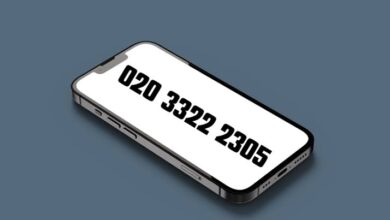Poor Mobile Communication Outside The City: What Are The Solutions to The Problem?

Living outside the city offers many advantages: clean air, silence, and closeness to nature. However, distance from urban centers often comes with certain inconveniences, among which one of the most pressing problems is poor mobile communications. Weak signals and frequent connection dropouts can significantly complicate both everyday communication and work processes, especially in the era of remote work and online learning.
Poor mobile communications can not only cause inconvenience but can also create serious problems in emergency situations. In this article, we will look at one of the most effective solutions to the problem of poor mobile signal. This information will help you make the right decision when investing in Vodafone, EE, or Three signal booster.
Reasons For Poor Mobile Signal Quality Outside The City
There are three main reasons for poor signal quality in a house outside the city.
- Distance of the house from the base station
The fact is that the equipment necessary to cover a large area with a high-quality mobile signal is quite expensive. Therefore, operators are trying to optimize their costs by placing towers where they are most in demand, namely within the city. Suburban areas, in turn, are inhabited by a small number of people; in addition, small settlements are locate at a great distance from each other. The mobile operator’s equipment does not always cover these areas well, so users often encounter poor signal quality.
- There are obstacles in the signal path
This is a less common problem but still occurs. Forests, high-rise buildings, and natural landscapes can be barriers to uniform mobile signal coverage. Thus, if your house is located in a lowland, then the natural landscape will be an objective barrier to the passage of the signal.
- Structural elements of the building interfere
This reason is quite simple to identify. If your phone shows a strong signal near the house or on the terrace, but inside the house the signal disappears, then the walls of the house are preventing the correct passage of the signal.
How to Solve The Problem With a Poor Mobile Signal Outside The City?
As a rule, users who encounter poor mobile signal quality first of all want to complain to the operator about the problem or change the telecom operator.
There is no point in complaining to the operator. There are likely to be quite a lot of such complaints, but the investments of users are unlikely to justify the costs of building a tower near a sparsely populated area. Where it is beneficial, there are already towers.
Changing a mobile operator is also a dubious decision. Here you should talk to your neighbors, check the signal quality of other towers using mobile applications, find out which operator receives better signals, and change your SIM card. But, alas, usually this either does not give an increase at all or only gives a slight increase in signal quality.
The only effective solution to the problem of poor signal outside the city is to install special equipment. This equipment includes a special booster that receives a signal from a mobile operator station using an external antenna installed on the wall or roof of a house, amplifies it, and transmits it to another antenna, which in turn redirects the signal to all phones and modems that are located nearby.
What Types of Mobile Boosters Are There?
To choose the right mobile signal booster and install the equipment correctly, it is important to understand the types of boosters. Today there are several mobile communication standards:
- 2G. This one is designed for voice communication and SMS messaging.
- 3G. This standard is intended for the Internet but allows its use in a somewhat limited version. For example, you won’t be able to watch videos in high definition.
- 4G (LTE). The most used format today. It provides ample opportunities for Internet surfing, voice communication, using instant messengers, making video calls, and more.
- 5G. Thanks to the development of super speed, 5G makes it easy for users to immerse themselves in virtual space.
Modern communication devices are programmed in such a way that when choosing from several signal standards, preference is given to the more advanced one. In this case, its power will not matter. Let’s imagine that in a certain area of the terrain, there is excellent 2G coverage, but at the same time, weak 3G is breaking through. In this case, the smartphone will automatically select the latter.
Boosters differ in the choice of frequency and signal standard. For example, if it comes to accessing calls in rural areas, then a booster that enhances 2G will be more than enough. But if you need Internet in a country house, then you should choose a device that works with 3G or 4G standards.
In addition, mobile signal boosters differ from each other and in other parameters. For example, boosters can be single-band and wideband:
- A single-band booster is a device that repeats certain radio communication ranges. This device is somewhat reminiscent of a walkie-talkie tune to one wavelength. For example, a repeater will only boost Three’s signal but will be useless for others. Such equipment is used less and less every day.
- Wideband boosters can rebroadcast the entire frequency range. Depending on the model, the user can manually adjust the power of the desired wave.
- Boosters are also available in analog and digital versions. In everyday life, equipment of the first type is most often used, while digital types of repeaters are expensive professional equipment for large enterprises, which can be controlled remotely.
Wrapping it Up
Installing a repeater will allow you to comfortably make calls and use mobile Internet outside the city. It is better to entrust the installation of such equipment to professionals since the quality of the mobile signal will depend on the correct installation of the equipment and the correct orientation and mounting height of the external antenna. If you are considering installing Tesco, Vodafone, or Three signal repeaters, we recommend paying attention to UCtel, a company with extensive experience in providing services to improve the quality of the mobile signal of popular British operators in apartments, houses, schools, hospitals, and other premises.



